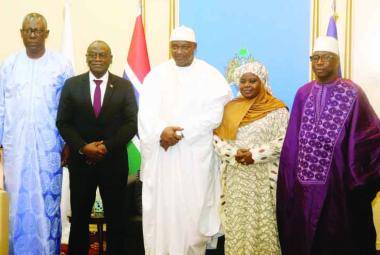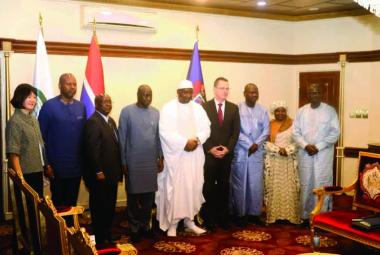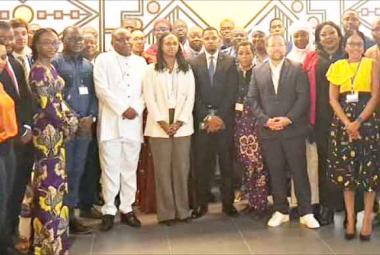Labour migration is literally the mobility of labour from one geographical location to another in pursuit of better economic livelihood by a person. It is a natural phenomenon to life particularly for us humans.
However, a better consideration in labour migration is skill acquisition, preferably through training and/or apprenticeship. Understanding the labour market for which labour is to be supplied is an important question that needs to be established and be prepared for, hence a second option.
Labour could be viewed in two forms: soft and hard skills. Soft skill implies the theoretical aspect; while hard skill implies the practical application; and moving around either domestically or internationally.
Irregular migration
We have seen a surge in irregular migration from The Gambia and an increasing death toll in the Atlantic journey.
The menace of irregular migration has occupied the minds and attentions of citizens and well wishers looking forward for salvation through economic triumph and a sustainable investment in youth development and re-orientation.
Policy Intervention
The Ministry of Trade, Industry, Regional Integration and Employment, in response to the emerging economic realities, had resolved to reformulate and repeal the 2010 National Employment Policy and Labour Act 2007, and replaced with the latest National Employment Policy and Action Plan 2022-2026 and Labour Act 2023 respectively. This is strongly considered to sanitize the labour market and ensure employment opportunities are created; particularly for the dominant youth population in the country.
The implementation of these two documents rests with the Department of Labour and stakeholders.
The re-formulation and implementation of both the employment policy and labour laws are coordinated with partners including the International Organisation for Migration, which provides technical assistance in the development of documentation and financing programs.
The Ministry developed the Labour Migration Strategy and Action Plan 2022-2026, the Policy Guideline for Labour Migration and Ethical Recruitment in The Gambia, and the Pre-Departure Training Manual for Labour Migrants in The Gambia. These documentations are meant to prepare the Ministry, the Department of Labour, and other stakeholders to engage in the fight against irregular migration. Currently, the ministry is building the institutional structures and operational arrangements to respond to existing and emerging issues around irregular migration.
The Ministry has chosen bilateral labour agreement as an option to proffer regular pathways, hence mitigating irregular migration.
As a result, the Ministry has signed two labour agreements with the United Arab Emirates and the Kingdom of Saudi Arabia; implementation of the Saudi agreement is currently underway.
The Government of The Gambia has considered bilateral labour agreement as an option to regularize irregular migration, a [phenomenon] which resulted in awful circumstances; ranging from loss of lives, brutal torture, trafficking, etc. have been registered.
A regional sensitization on the agreements has been completed and a documentary is being developed for public show on TV, radio, and social media.
The Ministry of Higher Education, Science, Research, and Technology has developed TVET Policy and TVET Roadmap to ensure skill development for young people in the country.
MoTIE is committed to collaborating with all relevant stakeholders both in the public and private sectors to make these opportunities reality.






